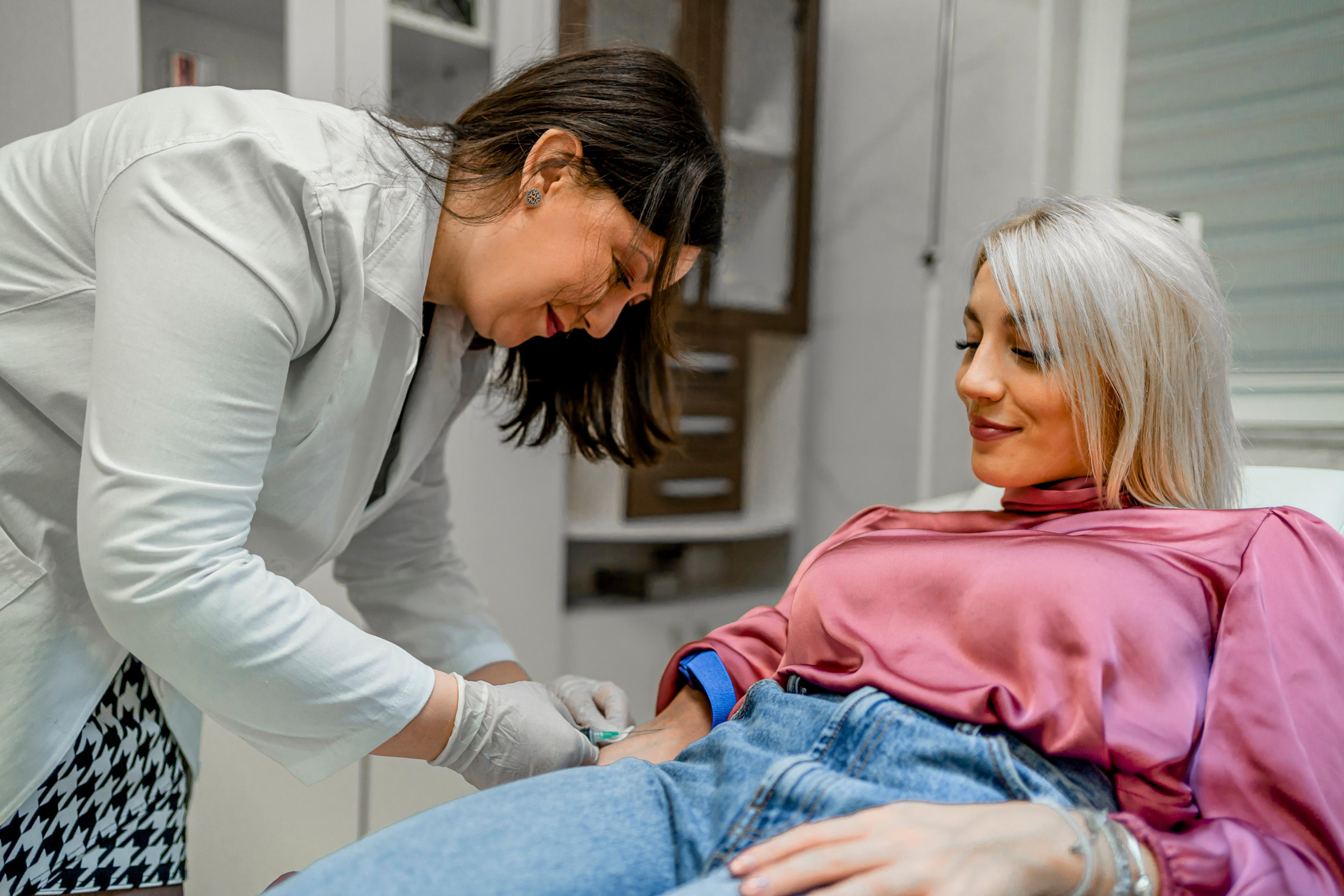Can Diet Affect Menopausal Hot Flashes?
Jake Newby
| 4 min read

Key Takeaways
- When estrogen levels decrease during menopause, it’s important to be mindful of the foods you eat and the amount of food you eat as protecting the body's bones and vital organs becomes crucial.
- Research has found that eating a nutritious diet featuring fruits, vegetables, whole grains, lean protein and healthy fats can reduced menopausal symptoms.
- Avoiding too much sugar and processed foods can also help reduce hot flashes.
- Soy-based products, veggies and foods rich in omega-3 fatty acids are great dietary staples for women going through menopause.
Menopause is a phase in a woman’s life that marks the end of her reproductive years and natural fertility. Perimenopause is a transition to menopause that can last for several years as the body prepares to stop having menstrual cycles.
Hot flashes – a common symptom of both conditions – may increase or decrease based on diet, according to the Cleveland Clinic. However, don’t think you have to adapt to some specialized diet is too expensive or unsatisfying to stick with; most of the foods and beverages that exacerbate hot flashes shouldn’t be eaten very often anyway.
Let’s look at the connection between nutrition and menopause and which foods you should avoid and eat more of to minimize hot flashes.
The link between nutrition and menopause
A 2023 study reviewing the importance of nutrition in menopause and perimenopause found that eating a nutritious diet featuring fruits, vegetables, whole grains, lean protein and healthy fats– while avoiding too much sugar and processed foods – reduced menopausal symptoms.
Additionally, the study recommended a smoking-free lifestyle and regular physical activity.
Causes of hot flashes and how diet plays a role
While the exact cause isn’t known, hormonal changes are the most likely cause of hot flashes, according to the Cleveland Clinic. Experts have found a connection between declining estrogen levels and the body’s ability to properly regulate its temperature.
When estrogen levels decrease, it’s important to be more mindful of the kinds of food you eat and the amount of food you eat as protecting the body’s bones and vital organs becomes crucial. Decreased estrogen levels can affect your bones, muscle mass and metabolism.
Which foods can trigger hot flashes?
Women are most vulnerable to hot flashes before their last period – during perimenopause –according to Johns Hopkins Medicine, which states hot flashes occur for two years or less for 80% of women.
This is an important time to focus on your diet in hopes of reducing hot flashes as much as possible. This could be a good time to cut back on the following foods and beverages or eliminate them altogether:
- Alcohol: since alcohol also disrupts the body’s ability to regulate its temperature, it can present a hot flash trigger for some women and exacerbate symptoms, per the Mayo Clinic.
- Caffeinated drinks: one study found an association between caffeine use and an increase in hot flashes among postmenopausal women.
- Spicy foods: the Cleveland Clinic refers to spicy foods as a common trigger for hot flashes, noting that heat causes heat.
- Ultra-processed foods: a 2025 study tracking 305 postmenopausal women concluded that the severity of hot flashes increased as their intake ultra-processed food (UPF) consumption increase. Elevated blood pressure and hot flashes also share a bidirectional relationship, in that women who experience menopause-related hot flashes and night sweats have been linked toa greater risk for high blood pressure and other cardiovascular risk factors, according to the American Heart Association.
Foods that fight hot flashes
Experts have found evidence that adding the following foods to your diet may help you ward off hot flashes:
Soy-based products are a good place to start. A 2021 study found that a vegan diet and whole soybeans were associated with reduced frequency and severity of hot flashes. Opting for natural soy sources from food – rather than supplements – is preferred. So, try eating and drinking more:
- Edamame (whole soybeans)
- Tempeh
- Tofu
- Soy milk
Vegetables that promote weight loss: we all know eating more vegetables can lead to positive health outcomes. If you’re trying to avoid hot flashes, focus on eating veggies that promote weight loss because they are high in fiber and water and low in calories.
One study found weight loss to be an important part of a healthy dietary modification to eliminating hot flash symptoms among postmenopausal women. You really can’t go wrong by swapping out fatty and salty snacks with fresh veggies, but here are specific ones to target:
- Cruciferous veggies such as broccoli, cauliflower and Brussels sprouts
- Leafy green veggies like spinach, kale and romaine lettuce
- Other low-calorie veggies such as asparagus, carrots, tomatoes and bell peppers
Additionally, for a well-rounded diet chockful of hearty foods that will alleviate hunger, eat more foods high in omega-3 fatty acids. This can include lean protein like salmon, herring, tuna and other fish, as well as the following plant-based omega-3 sources:
- Avocado
- Chia seeds
- Ground flaxseeds
- Walnuts
If you don’t feel like a diet change is helping with your hot flashes – and they are continuing to interfere with your daily life and sleep – contact your primary care provider. They can discuss additional lifestyle changes and suggest treatment options to help you reduce your symptoms.
Related:
Photo credit: Getty Images





